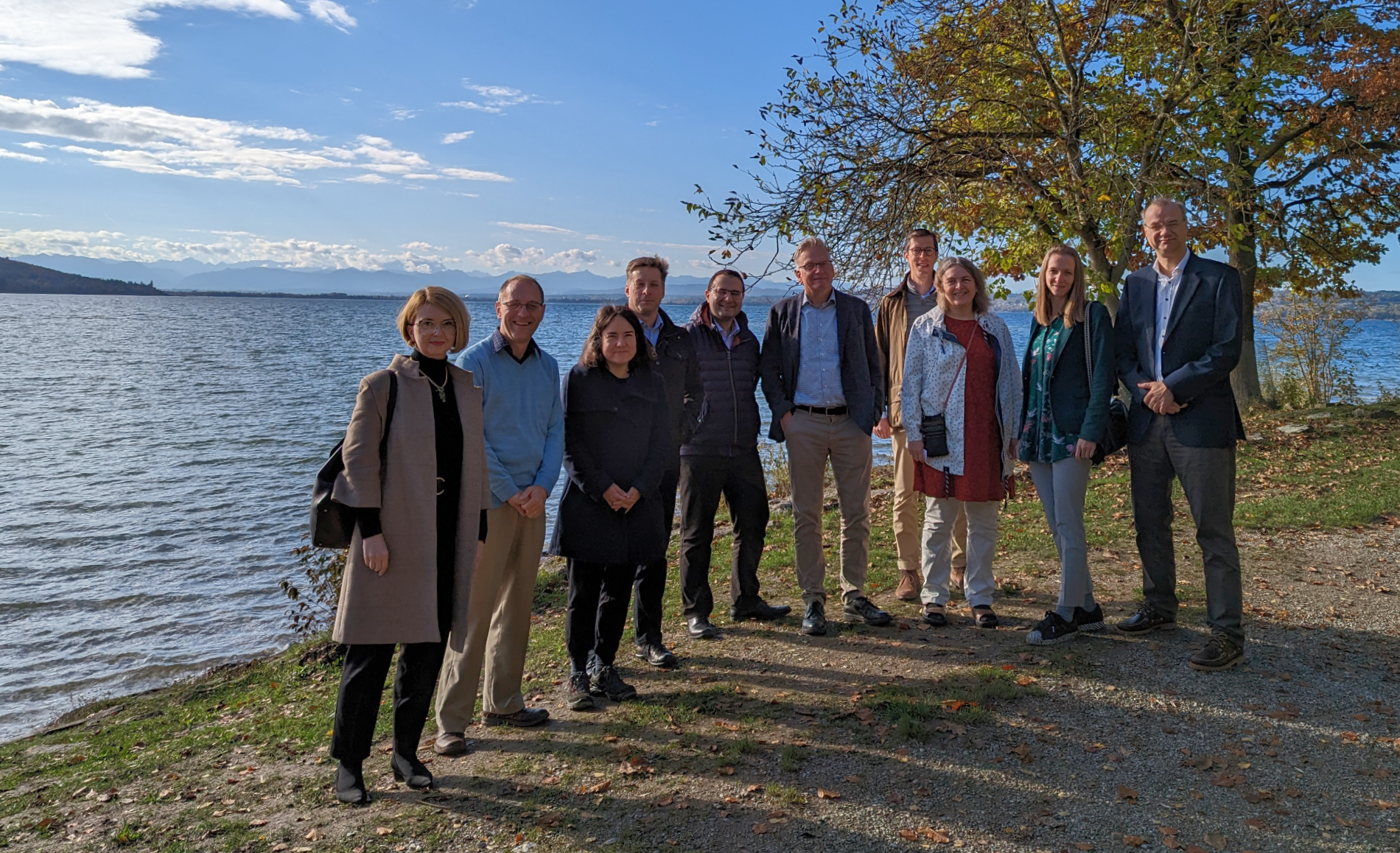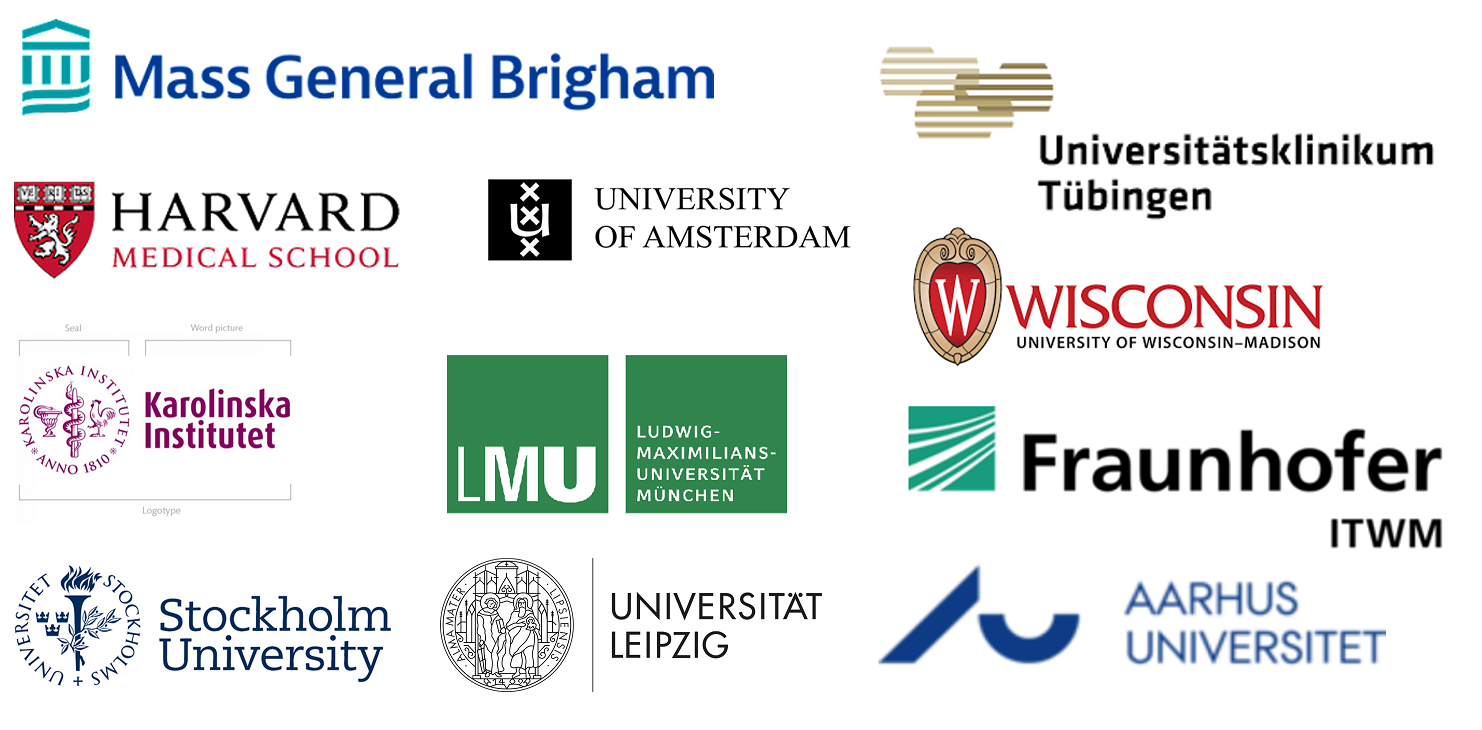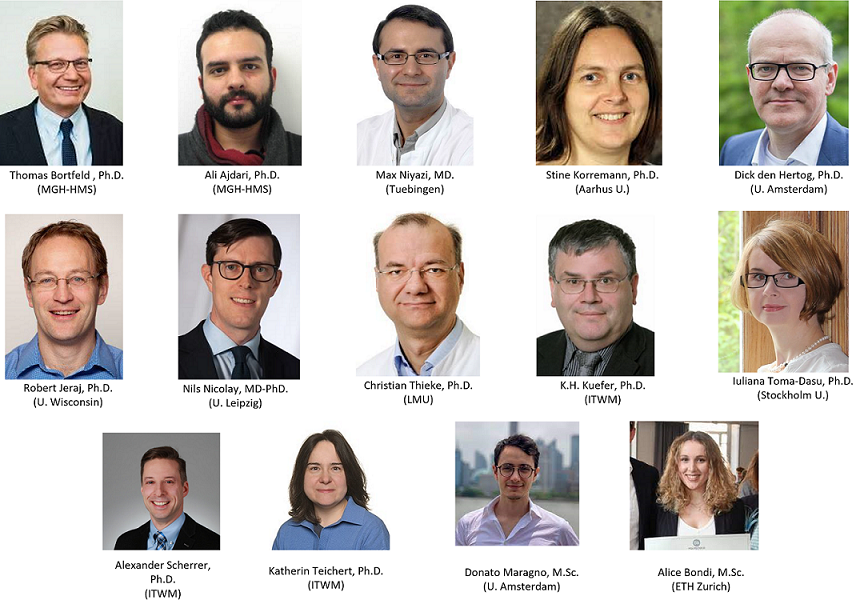
Optimal Stopping in Radiation Therapy (OSRT) is an international consortium dedicated to personalizing radiation therapy using mathematics, optimization, and machine learning techniques. Established in 2018, the consortium brings together mathematicians, data scientists, physicians, and physicists to develop a mathematical framework for personalized decision-making in the field of radiation oncology. The premise is that mathematical methods can tell us how to tailor the radiation dose and/or fractionation scheme based on imaging, genetics, and other relevant biomarkers collected before and "during" the course of treatment. To date, the consortium has conducted three international workshops in Boston and Germany, with the most recent one in October 2023. The consortium is actively working on multiple areas of plan personalization based on the biological markers of patients.
Core Institutions
The consortium is an international collaboration between 8 world-renowned cancer and optimization institutions around the world. The current core institutes are:
- Department of Radiation Oncology, Massachusetts General Hospital and Harvard Medical School, Boston, MA, USA
- Fraunhofer Institute for Industrial Mathematics, Kaiserslautern, Germany
- University Hospital Tübingen, Tübingen, Germany
- Department of Radiation Oncology, University of Leipzig, Germany
- School of Economics and Management, University of Amsterdam, Amsterdam, Netherlands
- Department of Clinical Medicine, Aarhus University, Aarhus, Denmark
- Department of Medical Physics, University of Wisconsin, Madison, WI, USA
- Department of Radiation Oncology, Ludwig-Maximilians University of Munich, Munich, Germany
- Department of Medical Radiation Physics, Stockholm University, Stockholm, Sweden
- Department of Oncology and Pathology, Karolinska Institutet, Stockholm, Sweden

Core Members

The OSRT consortium brings together experts in medical physics, radiation oncology, optimization, mathematics, and data science to form multi-disciplinary collaborations for tackling all three aspects of personalized RT and OSRT, namely: Biomarker Discovery, Predictive Modeling, and Treatment Personalization (see the dedicated page for each one for more information). The current core members include:
- Thomas Bortfeld, Ph.D. (Harvard Medical School and Massachusetts General Hospital, Boston, US)
- Ali Ajdari, Ph.D. (Harvard Medical School and Massachusetts General Hospital, Boston, US)
- Dick den Hertog, Ph.D. (University of Amsterdam, Netherlands)
- Robert Jeraj, Ph.D. (University of Wisconsin, Madison, US)
- Stine Korreman, Ph.D. (Aarhus University, Aarhus, Denmark)
- Maximilian Niyazi, M.D. (Ludwig-Maximilians University of Munich, Munich, Germany)
- Christien Thieke, M.D., Ph.D. (Ludwig-Maximilians University of Munich, Munich, Germany)
- Nils Henrik Nicolay, M.D.-Ph.D. (University of Freiburg Medical Center, Freiburg, Germany)
- Iuliana Toma-Dasu, Ph.D. (Stockholm University & Karolinska Instituet, Sweden)
- Karl-Heinz Küfer, Ph.D. (Fraunhofer Institute for Industrial Mathematics, ITWM, Kaiserslautern, Germany)
- Katherin Teichert, Ph.D. (ITWM, Germany)
- Alexander Scherrer, Ph.D. (ITWM, Germany)
- Donato Maragno, M.Sc. (U. Amsterdam, Netherlands)
- Alice Bondi, M.Sc. (ETH Zurich, Switzerland)
Alumni
- Stefan ten Eikelder, M.Sc. (Tilburg School of Economics, Tilburg, Netherlands)
- Cristina Collicott, Ph.D. (Fraunhofer Institute for Industrial Mathematics, ITWM, Kaiserslautern, Germany)
- Esther Bonacker, Ph.D. (Fraunhofer Institute for Industrial Mathematics, ITWM, Kaiserslautern, Germany)
- Peter Ferjancic, M.Sc. (University of Wisconsin, Madison, US)
Interested in Collaborations?
We are continuously looking for interested collaborators and curious students to brainstorm, start new collaborations, and exchange knowledge. If you are interested, reach us at
